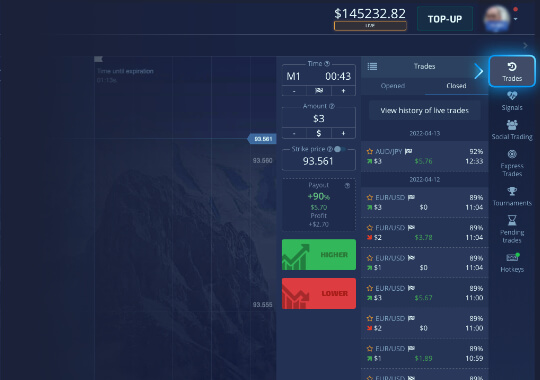
Understanding the Pocket Option Tax Form: A Comprehensive Guide
When it comes to online trading, ensuring compliance with tax regulations is essential for every trader. One critical aspect of this is understanding the pocket option tax form pocket option tax form, which can often be confusing due to its complexity and the varying requirements based on location and trading activities.
The Pocket Option trading platform has gained significant popularity among traders for its user-friendly interface and various trading options. However, with any financial endeavor comes the responsibility of reporting earnings to tax authorities. In this article, we will delve into what the Pocket Option tax form comprises, why it’s important, and how traders can ensure they comply with their local tax regulations.
What is the Pocket Option Tax Form?
The Pocket Option tax form is essentially a documentation utilized by traders to report their earnings and losses incurred on the Pocket Option platform. This form is not unique to Pocket Option but symbolizes a broader category of tax forms related to trading and investments. Traders utilize these forms to disclose their income from trading activities, capital gains, and any losses that can be offset against their taxable income.
Why is the Pocket Option Tax Form Important?
Understanding the importance of the Pocket Option tax form is crucial for any trader. Here are several reasons why you should pay close attention to it:
- Legal Compliance: Filing taxes accurately is a legal obligation. Failing to report earnings can lead to severe penalties, including fines or even legal action.
- Accurate Financial Reporting: Tracking your trading income and losses allows for better financial management. Understanding your profits and losses can help you make informed trading decisions in the future.
- Potential Deductions: In some jurisdictions, traders may be able to deduct certain expenses related to trading, such as software fees or educational resources. Accurate reporting on the tax form can help you claim these deductions.

How to Fill Out the Pocket Option Tax Form
Filling out the Pocket Option tax form can be straightforward if you keep clear records throughout the trading year. Here’s a step-by-step guide:
- Gather Your Trading Records: Compile all your trade records, including dates, amounts, and results of your trades.
- Calculate Your Total Earnings: Sum up your total profits from successful trades and subtract your losses from unsuccessful trades to determine your net earnings.
- Account for Deposits and Withdrawals: Keep track of any funds deposited into or withdrawn from your account, as these can impact your overall financial picture.
- Consult Local Tax Laws: Research the tax regulations in your jurisdiction regarding online trading and ensure your reporting aligns with those laws.
- Complete the Form: Fill out the Pocket Option tax form with the relevant information, ensuring accuracy to avoid any legal issues.
- File Your Taxes: Submit the completed form along with your other tax documentation by the relevant deadline.
Common Mistakes to Avoid
While filling out the Pocket Option tax form, there are several common pitfalls that traders might encounter:
- Inaccurate Records: Failing to maintain thorough and accurate records can lead to mistakes in your tax reporting.
- Ignoring Losses: Some traders forget to report losses, which could significantly reduce taxable income.
- Missing Deadlines: Ensure that you are aware of filing deadlines to avoid penalties.
- Neglecting Local Regulations: Tax laws vary widely. It’s critical to understand the laws that apply to your specific region.
Conclusion
In the world of trading, understanding the Pocket Option tax form is essential for legal compliance and effective financial management. By keeping thorough records, knowing the tax regulations in your jurisdiction, and being aware of common mistakes, traders can navigate the complexities of trading taxes more efficiently. Always consider consulting with a tax professional for personalized advice to ensure you’re meeting all obligations and taking advantage of available deductions.
As the financial trading landscape continues to evolve, staying informed and proactive about your tax responsibilities can pave the way for a successful trading career.
